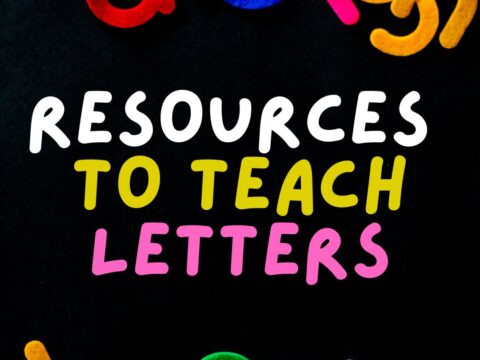Writing a great research paper involves more than just retelling what you’ve read. The foundation of any good paper is solid research. Here are five essential research techniques Ask a Tech Teacher contributor, Philip Richardson, suggests for college students that can also apply to high school research projects:
Top 5 Research Techniques for Your College Papers
Writing a killer college paper takes more than smashing your fingers on your keyboard until you get up to the required word count. At the center of any decent academic effort is a heaping pile of solid research. Wernher von Braun, a famous physicist and rocket engineer, once said: “Research is what I’m doing when I don’t know what I’m doing”, and he has a point!
Solid research lays a great foundation for any piece of writing. But to be able to research like a pro, you need to know basic research techniques – specific methods and strategies used to gather, analyze, and interpret data effectively for academic, scientific, or commercial purposes. Regardless of whether your paper explores the mating habits of night-flying insects or the socioeconomic implications of space tourism, your methods for research can make or break your paper. Here are five time-tested research secrets that can land you awesome grades, make your professors nod appreciatively, and maybe even bring a smile to your face while you are at it.
1. Harness the Power of Databases
Not exactly hacking the CIA, but many of us never get comfortable with using the academic databases of JSTOR, PubMed or Google Scholar – yet these are the motherlode of the scholarly and legitimate source. If you’re skilled at using search terms, you can determine scarcity, find anything, and be Jedi-worthy. You should also comb through helpful online writing resources while you’re at it. Sites that can lend you an APA essay writer or a PhD researcher can elevate your paper. So, it’s time to perfect your browsing skills.
2. Start with a Broad Brush, then Narrow Down
It might be tempting or comforting to delve immediately into the academic weeds. But this mindset compromises your approach. You should actually start broad, using a general source as a foundation. This could be something as simple as Wikipedia (oh, the horror!) or something as ‘serious’ as a basic textbook.
Here are just a few types of resources you can use, as outlined by researchers:
Once you have dipped your toes into the water, narrow your focus into one or two next-level works, and then follow that path. This will, in turn, determine how you frame your thesis.
3. Master the Art of Skimming
Here’s a practical truth: there’s simply not enough caffeine to get you through reading every word of every research paper you find. Skimming academic articles can save you countless hours and will help you research as effectively as famous essayists do. Here’s how you can quickly determine if a paper is relevant to your research:
| Read Abstracts | These summarize the main points and outcomes of the research |
| Introductory Paragraphs | These set up the research problem and objectives |
| Concluding Paragraphs | Here, you’ll find the results and final thoughts of the study |
| Headings and Subheadings | Scan these to understand the structure and main points discussed |
| Look for Keywords | Spot relevant keywords that align with your research topic |
4. Keep Meticulous Records
Keeping track of your research sources can quickly become overwhelming. To stay organized from the start, decide on a method that works best for you, such as using a spreadsheet or a reference management tool like Zotero or EndNote. Here are a few key pieces of information to keep at your fingertips:
- Author Names: Keep a record of all authors associated with each source.
- Titles: Note down the full titles of articles, books, and other resources.
- Publication Year: Record the year each piece was published to reference the timeline of your research.
- Major Findings: Summarize the main outcomes or conclusions from each source.
This organized approach will streamline the process of quoting and citing sources when you’re deep into your writing phase.
5. Connect with Experts
Sometimes, the best research springs from a conversation. Reach out to experts; that could be professors, or even other students who are working on a similar topic. They can share their time-management tips, research notes, and other useful data. You can put your minds together and come up with some insights that will benefit both of your papers.
Putting the Pieces Together
Keep in mind that the best research is both broad and deep: broad enough in your initial search so that you capture the context; and deep enough in that search so that you reveal something new. These techniques will help you research with gusto! You might discover that the library – virtual or otherwise – can be as exciting as any detective’s office. And who knows what your next research paper could uncover?
Author: Philip Richardson
Philip is an experienced writer and researcher. He has spent many years sifting through heaps of information to complete many well-received papers. His goal is to share his many insights so that you, too, can research like a professional.
–image credit to Deposit Photo
Here’s the sign-up link if the image above doesn’t work:
Jacqui Murray has been teaching K-18 technology for 30 years. She is the editor/author of over a hundred tech ed resources including a K-12 technology curriculum, K-8 keyboard curriculum, K-8 Digital Citizenship curriculum. She is an adjunct professor in tech ed, Master Teacher, webmaster for four blogs, an Amazon Vine Voice, CSTA presentation reviewer, freelance journalist on tech ed topics, contributor to NEA Today, and author of the tech thrillers, To Hunt a Sub and Twenty-four Days. You can find her resources at Structured Learning.










































I think that is great advice
Thanks, Thomas. Good basics for getting what is a daunting task done right.
“Research tip: Skip the caffeine overload! Scan abstracts, intros, and conclusions of papers. Keywords and headings are your friends for fast-tracking relevance. Stay organized with tools like Zotero for stress-free sourcing.”
All good tips! That keywords and headings–great reminders to us as writers to pay attention to penning those well. Thanks for commenting.